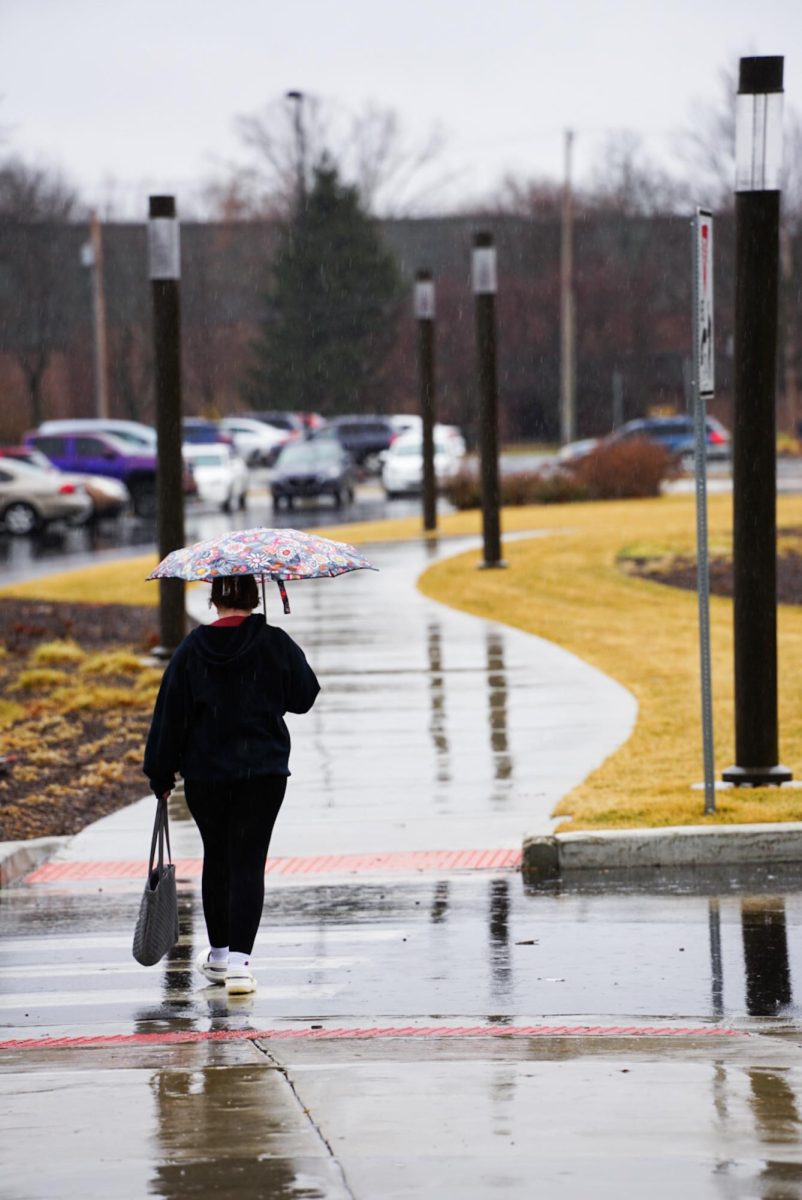A lot of people talk about the need to fight climate change, but some people at PNW are doing something about it.
“Climate change awareness is the largest threat humanity faces,” said Jason Steffel, president of the Environmental Club. “It will end up killing millions or billions of people over the next century and will drastically change how our world works.
“Not only is awareness of climate change an issue,” he said. “Being aware of just how serious climate change is, presents an even larger issue since many people are aware of climate change but not aware of how seriously it will impact our way of life.”
Last month, tens of thousands of protesters from more than 50 countries called for world leaders to end the use of fossil fuels. In 2022, the burning of fossil fuels, such as coal, oil and natural gas, accounted for 73% of total greenhouse gas emissions, the highest percentage ever recorded, according to the U.S. Energy Information Administration. Scientists say greenhouse gas concentrations speed up climate change.
Steffel’s group is doing its part trying to tackle environmental issues locally.
“Our goal is to help the environment around PNW in any way we can, while encouraging students to research and care about the environment,” said Steffel. “Last year we participated in invasive species removal at Gabis Arboretum, planted trees, helped spread climate awareness and worked on numerous upcoming projects.”
One PNW student says climate change directly affected his career path.
“I have always wanted to do something that could help combat [climate change], and that’s why I switched my major from Mechanical Engineering to Civil Engineering,” said senior Zach Azona-Tobin. “One of the most recent ways it has affected me directly was my choice to do the Study Away program in Germany this last May, which was focused on sustainable energy technologies.
“I learned about the engineering behind several types of alternative power sources such as solar, wind, hydro, geothermal, and more,” he said.
The program gave Tobin a broader perspective on climate change.
“This experience really showed me how America needs to adapt and build up its infrastructure fast and use these technologies if we wish to weather the challenges of climate change in the coming decades,” he said.
One PNW professor says there are plenty of things students can do to address this issue.
“Walk, ride a bicycle, or use public transportation, when possible, to reduce fossil fuel emissions,” said Ed Pierson, an Electrical Engineering professor. “Turn off lights and unplug electronics when not using them, take shorter showers and recycle.”
Pierson also believes students need to make sure they support politicians who support their concerns about climate change.
“I would suggest that students vote for those who support the environment, not just a candidate who says they do,” he said. “To do this, I would suggest doing some research on environmental projects that the candidate has been involved in during their career.”


